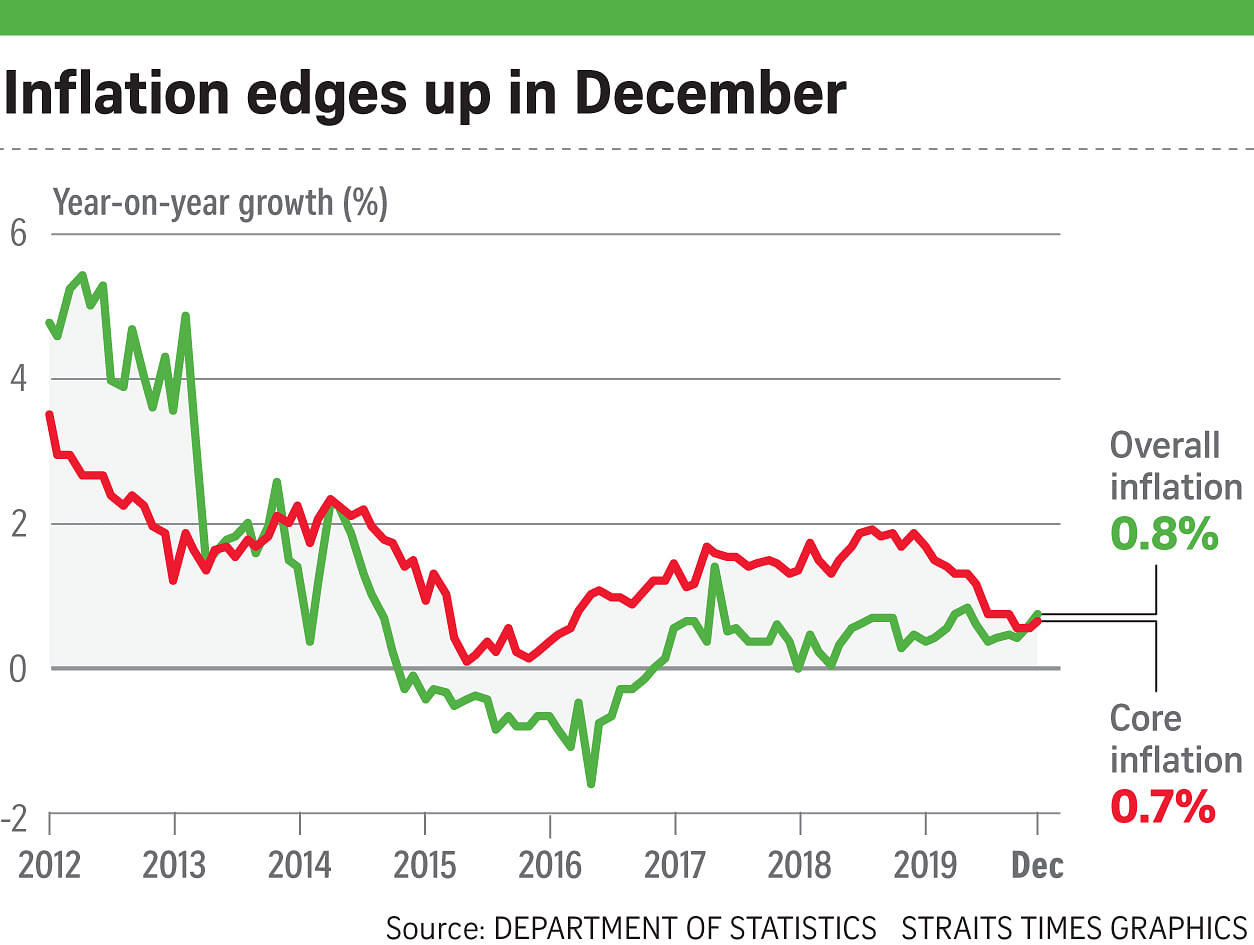Core inflation came in at 1 per cent last year, well under the 1.7 per cent recorded in 2018, and at the bottom end of the Government's forecast range.
Core inflation excludes the costs of accommodation and private road transport. It reached 0.7 per cent last month year on year, from 0.6 per cent last November.
Headline or overall inflation also picked up, coming in at 0.8 per cent last month compared with December 2018, and up from 0.6 per cent last November. This was largely on account of pricier private road transport and services.
Overall inflation rose to 0.6 per cent last year from 0.4 per cent in 2018.
Maybank Kim Eng economists Chua Hak Bin and Lee Ju Ye said yesterday: "The uptick in Singapore's inflation in December is consistent with the pickup seen in most of Asia on the back of rising food and oil prices towards the end of 2019.
"Oil prices could be volatile in the near term due to geopolitical risks.
"Inflation has bottomed out, but will likely remain manageable in 2020... Growth is recovering at a sluggish pace."
Private road transport costs rose by 3.1 per cent last month over the same month in 2018, mostly due to a larger increase in petrol prices, which outweighed the smaller increases in the prices of cars, and motorcycles and scooters.
Services inflation picked up to 1.3 per cent last month on the back of a larger increase in telecommunications service fees, education service fees and higher airfares, the Monetary Authority of Singapore (MAS) and the Ministry of Trade and Industry (MTI) noted.
Food inflation edged up to 1.8 per cent due to a faster pace of price increase for non-cooked food and prepared meals.
Associate Professor Lawrence Loh of the National University of Singapore Business School said: "Singapore's inflation in food and services is in line with global changes where product-based economies are transforming into experience-based economies."
However, accommodation costs decreased by 0.1 per cent as housing rentals declined more gradually. The cost of electricity and gas declined by 11.4 per cent last month, as the Open Electricity Market continued to have a dampening effect on prices.
The cost of retail items also fell, down 0.7 per cent year on year last month, as the cost of recreation and entertainment goods, as well as clothing and footwear, registered larger declines, negating costlier personal care products.
External sources of inflation are likely to remain benign amid weak demand and generally well-supplied food and commodity markets, the MAS and MTI noted.
"On the domestic front, labour market conditions are softening slightly, which would lower wage growth in 2019 and 2020 compared to 2018," the MAS and MTI added.
"At the same time, non-labour costs such as retail rents should stay subdued, and any cost pass-through to consumers would be constrained by the subdued economic environment."
JPMorgan analyst Ong Sin Beng said: "Weak global price pressures and limited domestic price pressures, including softer commercial and retail rents and limited wage pressures, have contributed to Singapore's softer core inflation in recent months, and we expect the same dynamics to persist in the coming quarters.
"Moreover, the recent outbreak of (coronavirus) could also impact sentiment and thus dampen price pressures."



